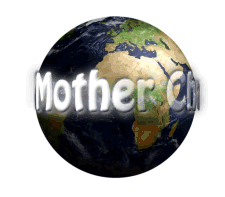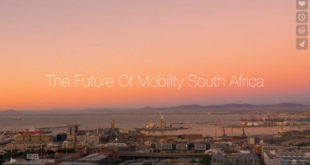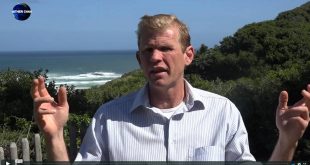In this interview with Mother Channel, Kaisa Kosonen of Greenpeace, Finland, speaks at COP 20, Lima, Peru, on changing energy sources and opens the interview by stating that there have been enormous breakthroughs in renewable energy in last 5 years, citing the reduction in prices of solar panels by 80% over this period and that this form of renewable energy no longer a luxury status item for industrial countries, as in past, but increasingly the cheapest way to produce new electricity, which would solve not only the climate problem but energy access problems as well.
The multiple problems of fossil fuel use has become more apparent in just 5 years, viz; the air pollution problem in China has become ‘apocalyptic’, with China now taking drastic measures to reduce their coal usage, not primarily because of climate change, but more in national interest, due to people having serious respiration issues, not being able to raise their children or have sustainable lives in the cities, and countries with high emissions per capita, i.e. China and South Africa, as examples, one can see changes in these countries positions, in that they do recognize that they increasingly need to take responsibility in terms of their own interest, serving their people, national security, etc to prevent climate disasters and move to cleaner energy and a major reason for optimism in this regard, is that with problems around the world, becoming so bad, climate change is not the only driver, but people are increasingly wanting/demanding clean energy and believe that’s what they deserve!
Greenpeace have been locked into the issues surrounding government control and protection of their interests in their own fossil fuel industries rather than interests of their own citizens, which is now changing because of the solar revolution, renewable energy, particularly solar and wind becoming so cheap.
People power forcing change, for example, in Denmark 75% of wind turbines are owned by citizens, households, etc and Germany, 50% of all renewable power is owned by the people themselves.
Nuclear – in her home country of Finland, the government is deciding on a new nuclear plan, however, they already have a really badly failed nuclear project, which is absurd. The IPCC scientific community have stated that nuclear is a mature technology and could play a role, however, in practice, it is in decline and faces many barriers and risks, confirmed by various scenario’s of the International Energy agency whose predictions for nuclear energy show a decline each year. Bad economics in countries are barriers to nuclear programs, in terms of construction, unseen costs, etc.
Coal fire power stations in China – up to 2010 China was increasing the build of these plants exponentially, but with the onset of their serious air pollution problems and well as the industry having a large water footprint, they have realized the long-term drawbacks of this methodology and had to introduce strong restrictions to new build of coal in key economic regions and setting caps for coal consumption, including requirements for declining use of coal in key regions in China. Coal consumption has been growing between 5-10% per year in the first decade of the century, however, it looks like for first time, its starting to decline by 1-2%.
When asked about possible effective solutions to the worldwide energy problem, Ms Kosonen stated the following: A local saying: ‘When in a hole – stop digging’! also – Stop looking for oil, there is already enough and we cannot burn most of it, Stop building any new coal-fired power plants – the biggest problem at the moment and Speed up the clean energy transition that has already started – energy efficiency renewables are a winning combo that are bringing people of world so many positive benefits.
Greenpeace are campaigning in key countries for both “phasing out” dirty energy as well as “phasing in” policies that enable energy renewables to be scaled up and also encouraging people to become part of the movement to demand the policies and change from their governments.
When asked about reducing methane emissions into the atmosphere, Ms Kosonen stated that Greenpeace are advocating new agricultural practices, the increase of vegetarian diets around the world and have a food campaign known as ‘Food for Life’, as well as campaigning on climate resilient agriculture practices in Africa, with the focus on reducing methane gas emissions.
“Getting to 0% emissions by 2050 would require starting 0% now “!
 Mother Channel Environmental, climate change news and media.
Mother Channel Environmental, climate change news and media.



